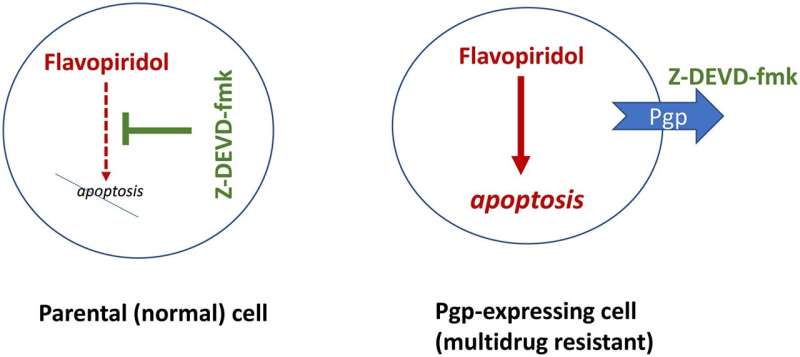
A new review paper titled “Selective protection of normal cells from chemotherapy, while killing drug-resistant cancer cells” has been published in Oncotarget.
Cancer therapy is limited by toxicity in normal cells and drug-resistance in cancer cells. In his latest review, Mikhail V. Blagosklonny, M.D., Ph.D., from Roswell Park Comprehensive Cancer Center, discusses the theory that cancer resistance to certain therapies can be exploited for protection of normal cells—simultaneously enabling the selective killing of resistant cancer cells by using antagonistic drug combinations, which include cytotoxic and protective drugs.
“No cancer cell, no matter how resistant it is, can survive chemotherapy in a cell culture. In the organism, however, therapy of cancer is limited by killing or damaging normal cells. Selective protection of normal cells from chemotherapy would increase the therapeutic window, improving the therapeutic outcome. Needless to say, reduction of side effects and better quality of life are very important for a cancer patient,” states Dr. Blagosklonny.
Depending on the mechanisms of drug-resistance in cancer cells, the protection of normal cells can be achieved with inhibitors of CDK4/6, caspases, Mdm2, mTOR, and mitogenic kinases. When normal cells are protected, the selectivity and potency of multi-drug combinations can be further enhanced by adding synergistic drugs, in theory, eliminating the deadliest cancer clones with minimal side effects.
“I also discuss how the recent success of Trilaciclib may foster similar approaches into clinical practice, how to mitigate systemic side effects of chemotherapy in patients with brain tumors and how to ensure that protective drugs would only protect normal cells (not cancer cells) in a particular patient,” adds Dr. Blagosklonny.
Impact Journals

